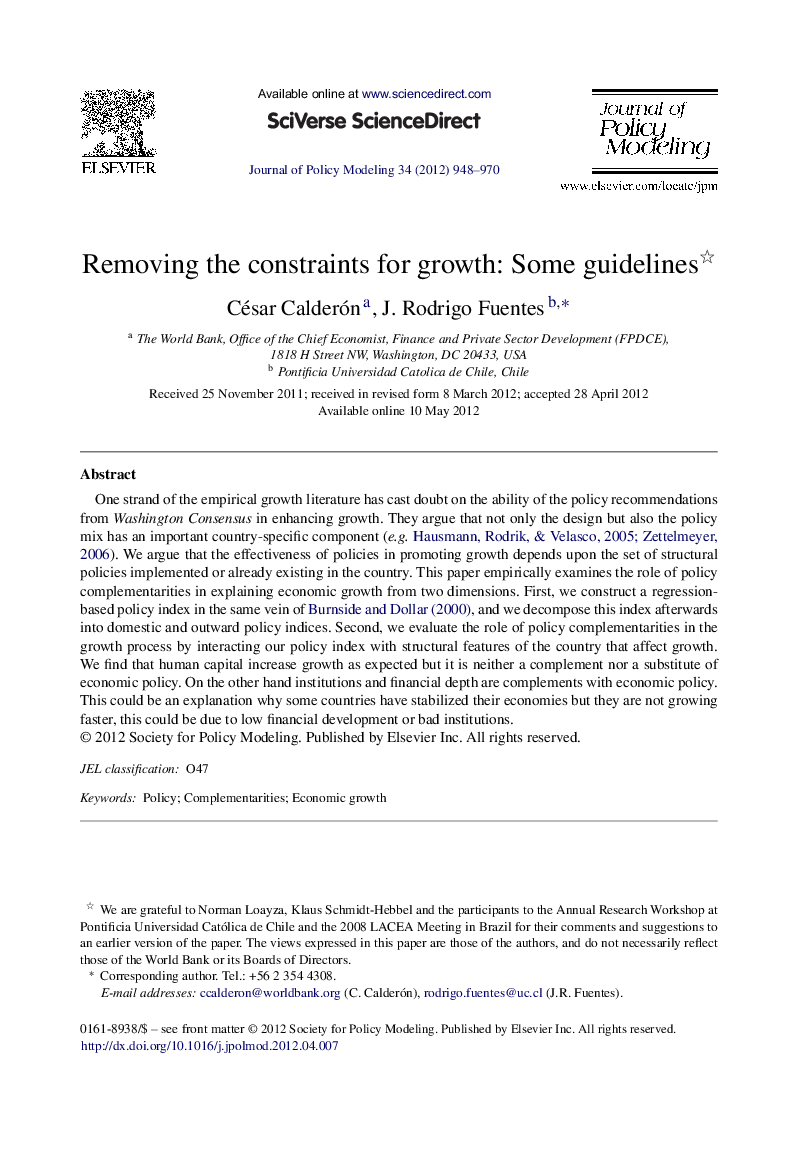| Article ID | Journal | Published Year | Pages | File Type |
|---|---|---|---|---|
| 968613 | Journal of Policy Modeling | 2012 | 23 Pages |
One strand of the empirical growth literature has cast doubt on the ability of the policy recommendations from Washington Consensus in enhancing growth. They argue that not only the design but also the policy mix has an important country-specific component (e.g. Hausmann et al., 2005 and Zettelmeyer, 2006). We argue that the effectiveness of policies in promoting growth depends upon the set of structural policies implemented or already existing in the country. This paper empirically examines the role of policy complementarities in explaining economic growth from two dimensions. First, we construct a regression-based policy index in the same vein of Burnside and Dollar (2000), and we decompose this index afterwards into domestic and outward policy indices. Second, we evaluate the role of policy complementarities in the growth process by interacting our policy index with structural features of the country that affect growth. We find that human capital increase growth as expected but it is neither a complement nor a substitute of economic policy. On the other hand institutions and financial depth are complements with economic policy. This could be an explanation why some countries have stabilized their economies but they are not growing faster, this could be due to low financial development or bad institutions.
